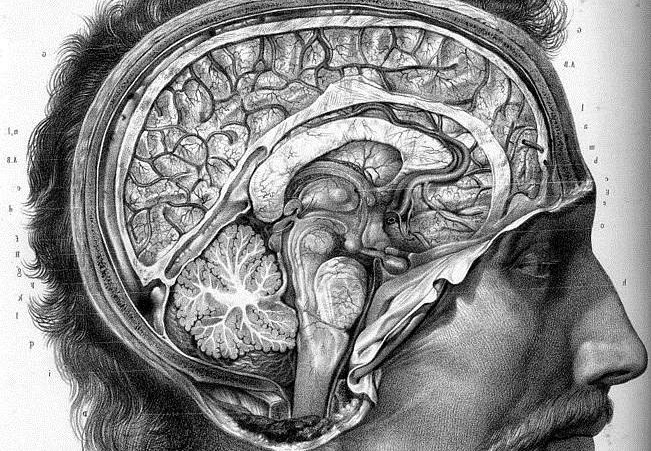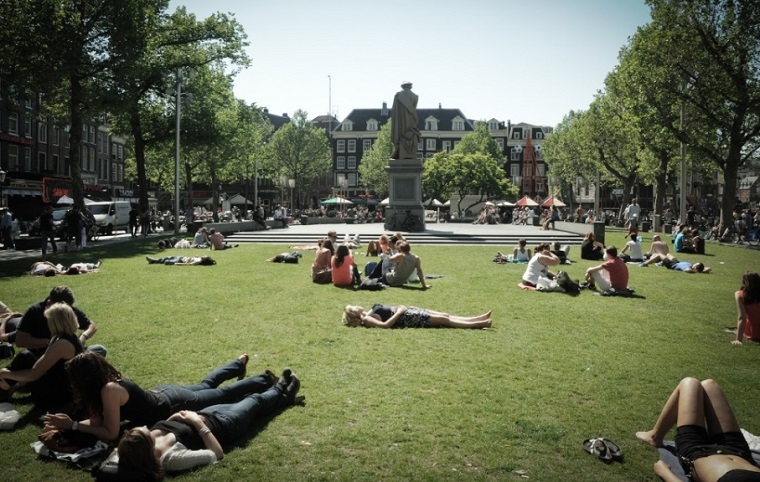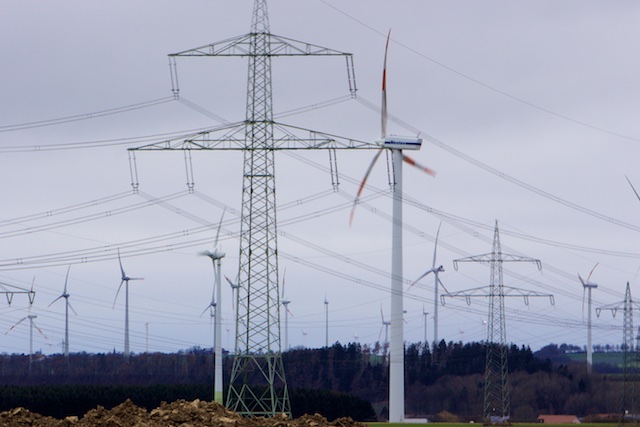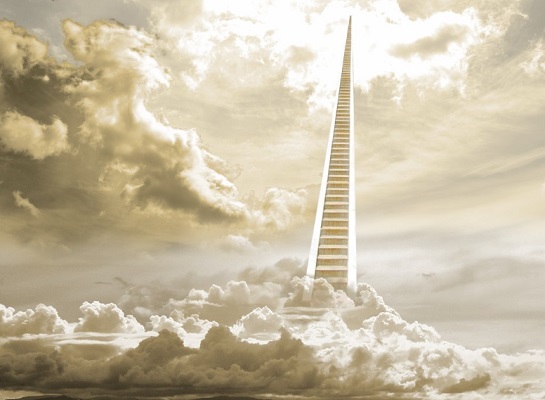

| The Spiritual Climate |
Preface
We live in the best times ever.Then why do fear and pessimism rule our world?
Why do we condemn the technology which enables our freedom,
sustains our lifestyle and saves our environment?
Why do we demonize CO2, the basic building block of life on earth?
Why did we turn our back to the enlightenment?
Science and Religion

Religion played an all important role in human history.
After the Middle Ages, science emerged.
The common goal of religion and science is the understanding of the universe and the miracle of life.
Science and religion are complementary.
Religion covers qualitative issues such as the purpose of life, it defines the human - nature relationship,
explains the creation of the universe, gives hope and controls existential fears by putting the future in God's hands.
Religious theses cannot be proofed and become "true" by consensus, the reason that heretics have to be silenced.
Endless repetition and environmental threats also do the work.
This places the believer in a priviledged position because sceptics do need to proof their arguments.
Science is the discovery of the laws of nature and comprises quantitative, measurable phenomena.
Scientific arguments become true by demonstration, independent of authority or consensus.
A note of caution is required. Some topics are well understood such as mechanics, energy and electronics.
But other subjects of science are in a stage of development and are unsettled.
Examples are very complex systems such as the human immune system and the climate.
As science progresses, the boundaries between religion and science slightly shift.
New questions however arise at the same time.
Science and it's applications has brought great progress to humanity.
For that reason, science is adjudged great authority.
However in each case we have to remember the state of the science involved:
proofed theories or models under development with uncentainties and shortcomings.
Heaven comes to Earth

Nature is hostile. There hardly exists a climate in which humans can survive without technology.
However, given the proper technology people can survive in any climate.
Progress therefore amounts to victory over nature, less dependency on land and nature.
This started long ago with the construction of roads, tunnels, canals and bridges.
Recently electric lighting was added.
Also, transportation systems serve this purpose.
Machines save us from heavy labour, vaccination programs and antibiotics protect
against natures less friendly creatures.
From immemorial times the earth has witnessed natural disasters, diseases and plagues.
Religion offers consolation and faith by declaring misery as “will of God”.
But thanks to science we now understand that thunder and lightning are physics,
vulcanic eruptions and earthquakes are geology, diseases and plagues are biology.
Weather and climate however are little understood so these phenomena are still perfectly suited
as divine speaking tube.
In the Golden Age Amsterdam was visited several times by the plague. Each time 20% of the inhabitants died.
A citizen asked for his conception of heaven, likely would describe our present way of life.
Just consider: contagious deseases eliminated, a doubled life expectancy, no hard physical labour,
abundant supply of food, safe drinking water, subtropical heated homes, medical care and 100hp in the garage.
Technology superseded the faith in sacral acts.
The increased existential certitude and diminished need for consolation resulted in secularisation,
the superfluity of heaven.
Human behaviour originates from physical feelings like hunger, thirst, heat, cold
and mental feelings such as joy, grief and fear.
This does not change by secularization.
Regarding religion as a projection of the human soul then raises the question: "where did heaven go"?
There is only one destination: Earth.
God and hereafter were transferred to earth.
An important aspect of religion is postmortal reckoning.
The hereafter being on earth this judgement, now physically, directly hits our descendants.
This puts our work in a totally different perspective.
With God in heaven man worked in good faith but it was God who shaped the future.
However with God on earth, man is totally responsible for the future.
Wrong choices confront our offspring with deluges.
However, it is impossible to be responsible for an unknown future.
This notion has maddening consequences.
Together with religion, the firewall against existential fears has collapsed.
Religion defined the position of mankind in relation to nature.
After creating the world God spoke to man, "Be fruitful and multiply. Fill the earth and govern it.
Reign over the fish in the sea, the birds in the sky, and all the animals that scurry along the ground."
God may be regarded The Unknown, the miracle of Life.
God on earth becomes nature, “Mother Earth” after gender change.
The canonization of -wild- nature, former God, also has profound consequences.
To live means to exploit the earth, there is no choice.
Tradional religion considered the earth a lumberyard.
But any intervention on "Mother Earth" now is a mutilation of God and may invoke sincere punishments.
There is no escape from living in sin. This again raises immense fears.
The Green church and the Sustainability Gospel.

We define sustainability as: “practises which can be applied by many generations to come”.
Let's have a look at places where people lived sustainable, in harmony with nature, for thousands of years.
Examples are the upland planes of New-Guinea or the Amazon jungle.
That's not encouraging at all.
We notice total stagnation, cruelty and a life expectancy of 35 years.
In utter astonishment we must conclude that our prosperity is the result
of the non-sustainable lifestyle of our ancestors.
They cut most trees already in the middle ages, then digged peat,
compensated land loss by regaining land from the sea, switched from peat to coal
and later developed oil and gas technology.
These resources are all finite, not sustainable according to our definition.
To define "sustainable" as infinity of resources therefore is not realistic.
Sustainability is maintaining prosperity, nothing else.
The use of finite resources results in innovation.
Innovation such as better mining technology in turn creates new resources.
Iron ore only is a resource when the steel production is mastered.
The presence of life means that for long it is was able to adapt to the earth conditions.
One way of life is in static harmony with nature, which means stagnation.
Adaptation in this case is governed by evolution and is a very slow process.
The other way is adaptation by innovation: the application of technology.
Technology uses finite resources so this lifestyle requires continuous innovation.
Environmental organisations already took care of nature.
After WW2 they did a good job because mining and atomic bomb experiments caused much damage.
For a wide audience they gained great respect and moral authority.
At the canonization of nature the environmental organizations became the new clergy,
some times jestingly called: "the Green Church".
Legal experts were keen to concide “ecocide” as the fifth crime against humanity.
Environmental lawyers as wrath of God: the new inquisition.
With regret we must conclude that the environmentalists are meagre clercyman.
The firewall against fear has not been repaired.
On the contrary, existential fears are exploited as a profitable business model.
Also they display no love for mankind by calling it a "cancer of the earth" while expressing the hope for deadly viruses.
Hurricanes, droughts, floods: it must be the revenge of Mother Earth.
Very likely, the succes of the Christian culture is also due to the cheap redeem of existential fears:
regular visit of sermons, prayers and confessions sufficed.
The Green Church however demands sacrifices which cost billions,
cause severe economic decline and loss of prosperity while heading for a more static lifestyle.
Governments do not regard environmetal institutes as religious organisations.
The green prelates were allowed at the negociation table which discontinued the separation
between church and state.
As a result many countries planned a future energy system solely based on virtual doom scenarios,
lacking scientific, technical and financial argumentation.
Indeed: the church never needs proofs: endless repetition and threats makes it words true.
Another example: After a natural disaster in Japan which destroyed a nuclear power plant, Germany installed
an “ethical commission” to judge over the future of nuclear energy.
This commission, among others, counted two bisshops but zero engineers.
Not only the separation between church and state disappeared but also religion and science became intermixed.
Environmental organisations base their objectives on science.
However they fail to mention the state of the science involved.
As an example, there are dozens of climate models which show very different outcomes for the relation
of CO2 concentrations to atmospheric temperatures: from neglectable to alarmistic.
Environmentalists present the most alarmistic model predictions as fixed and settled science.
The amalgamation of religion, science and government has created an obscure climate
in which facts and fiction are difficult to distinguish.
This gives room to cooked air business, false prophets, quacks and other salesman of seeming certainties.
The future, including the climate, are unknown and so belong in the hands of God.
Detaching God from earth will liberate us from false prophets and maddening virtual fears.
We have to realize that progress is improving the present, not being paralyzed as rabbits
caught by the headlights of doom scenarios like climate threats.
Let us create a new heaven for God.
In this fully modernized hereafter fusion reactors generate abundant free energy.
Beautiful nature is the home of cuddly animals and pancake houses always are on walking distances.
Separated there is truly wild nature with primitive facilities for the green believers.
Here the devil burns biomass to maintain his hellfire.
Any moment one may be hit by a windmill.
Deforested plains with chopped birds set the scene.
Parasites, plague and pocks thrive. Leper colonies are never far away.
This is true harmony with nature: poverty and suffering.
Gods festive ascention we celebrate at Christmas: tradionally the return of the light but now also of the enlightenment.

Note 1:
Atheists: trade "God" for "the Unknown".
Note 2:
Nature is not divine, but a lumberyard.
Progress is realized by improving the present.
Focusing on an unknown future causes paralyses by the precaution principle.
The future including unknown phenomena as the climate should be left in the hands of God.
Returning God to Heaven frees our mind and gives room to real innovation.
Note 3:
English is not my native language.
Please report errors so I can improve my text.
Thanks in advance.

